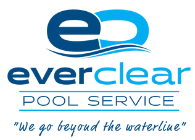 Swimming pools come in two main varieties – those treated with chlorine and those using saltwater systems. While both require regular maintenance, saltwater pools do tend to need a bit more care and attention.
Swimming pools come in two main varieties – those treated with chlorine and those using saltwater systems. While both require regular maintenance, saltwater pools do tend to need a bit more care and attention.
Why Saltwater Pools Require More Maintenance
- Saltwater generators – Salt water pools use a saltwater chlorine generator to produce chlorine for sanitization. These systems require regular maintenance to ensure they are working properly. This includes checking the salt level, cleaning and replacing electrodes, and checking for leaks. Chlorine-treated pools do not have these additional mechanical components.
- Higher salt levels – In order to produce enough chlorine, saltwater pools need to maintain higher salt concentrations than found in nature. This means more salt must be added periodically to replenish what is used up in the chlorine generation process. Chlorine pools do not require adding salt.
- Scaling and mineral buildup – The higher salt levels in saltwater pools can cause scaling and mineral buildup on surfaces over time. This buildup must be cleaned regularly to maintain proper water balance and sanitization. Chlorine pools do not deal with this type of scaling.
- pH and alkalinity adjustments – Saltwater pools require more frequent adjustments to pH and alkalinity levels due to the effects of the salt chlorine generator. These levels need to be within a narrow range for the generator to work properly and sanitize the water effectively. Chlorine pools need adjustments less often.
- Stabilizer requirements – Salt water pools need stabilizer chemicals added to help buffer the effects of the salt chlorine generator on pH and alkalinity. These stabilizers must be monitored and replenished more often than with chlorine pools.
- Filter cleaning – The higher salt content and mineral buildup in saltwater pools means the filter needs to be backwashed and cleaned more frequently. Clogged filters cannot effectively filter and circulate the water. Chlorine pool filters tend to require less frequent cleaning.
- Water testing – Saltwater pools need to have the water tested more often to ensure proper salt levels, pH, alkalinity, and chlorine levels for effective sanitization. Chlorine pools can typically go longer between water tests.
- Equipment costs – The initial equipment costs for a saltwater pool system tend to be higher due to the cost of the salt chlorine generator and other components. However, long-term costs tend to even out due to less needed for chlorine and pH adjusters.
In summary, while saltwater pools offer benefits like less harsh chlorine smell and easier sanitization, they do require more hands-on maintenance and care. This includes checking salt levels, maintaining the chlorine generator, more frequent water testing and adjustments, and dealing with scale buildup. For pool owners who don’t mind a bit more effort, saltwater pools can be a good option. But those looking for the easiest to maintain system should stick with chlorine. Regular maintenance is key for all pools to ensure safe and enjoyable swimming.
For more information on pool maintenance, questions regarding how we clean pools, and to schedule servicing your pool, contact us, we would love to assist in keeping your pool water clean.
More Information on Pool Maintenance:
How to clean poop out of the pool
Uncharted waters – new pool owner responsibilities
Pool Service and cleaning for Lake Havasu City
Black Algae and Your Lake Havasu Pool
Does Chlorine make your eyes sting?
